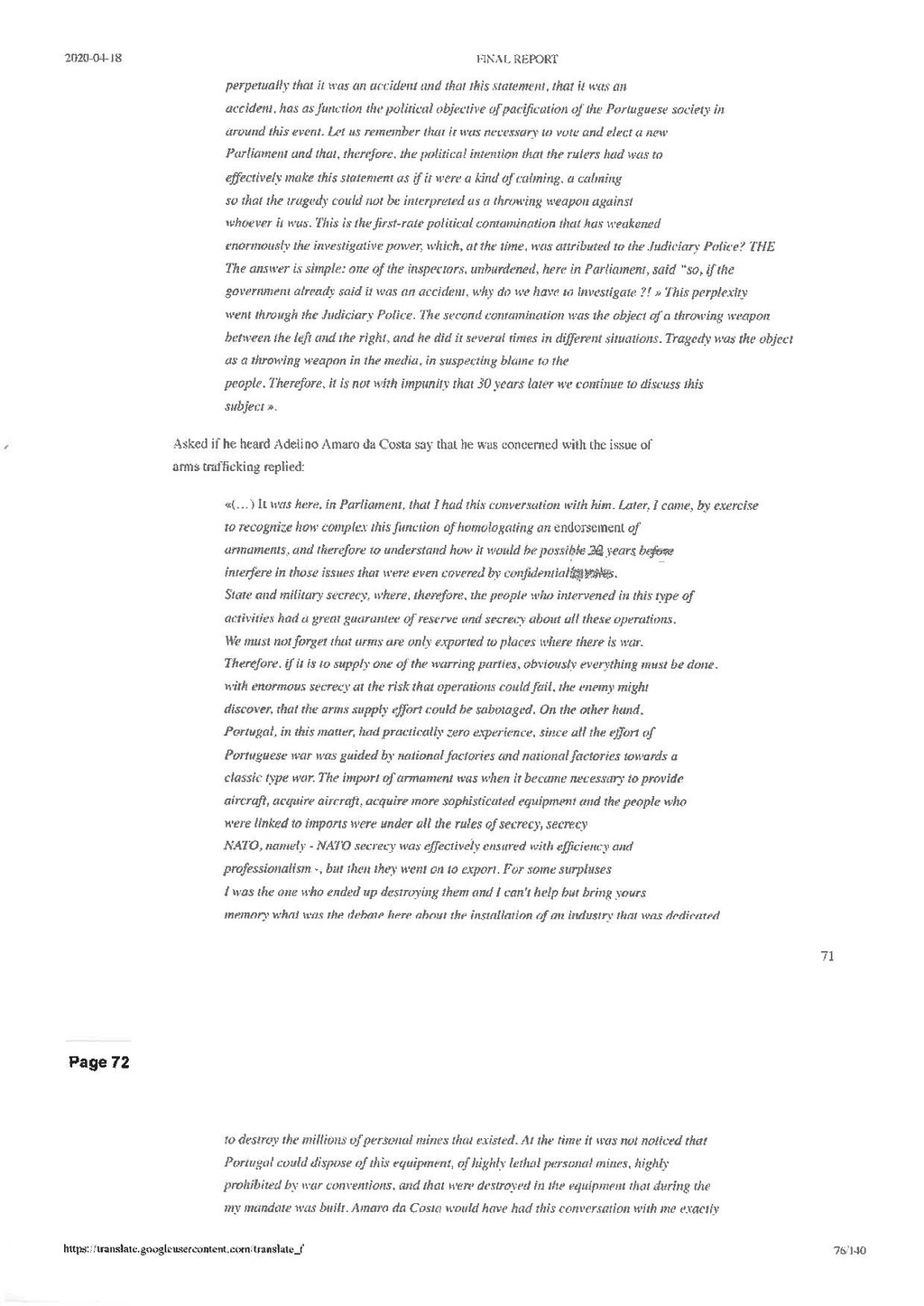perpetually that it was un accident and that this statement, that it was an accident, has as function the political objective of pacification of the Portuguese society in around this event. Let us remember that it was necessary to vote and elect a new Parliament and thut, therefore, the political intention that the rulers had was to effectively make this statement as if it were a kind of calming, a calming so that the tragedy could not be interpreted as a throwing weapon against whoever it was. This is the first-rate political contamination that has weakened enormously the investigative power, which, at the time, was attributed to the Judiciary Police? THE The answer is simple: one of the inspectors, unburdened, here in Parliament, said "so, if the government already said it was an accident, why do we have to investigate ?! » This perplexity went through the Judiciary Police. The second contamination was the object of a throwing weapon between the left and the right, and he did it several times in different situations. Tragedy was the object as a throwing weapon in the media, in suspecting blame to the people. Therefore, it is not with impunity that 30 years later we continue to discuss this subject ».
Asked if he heard Adelino Amaro da Costa say that he was concerned with the issue of arms trafficking replied:
« ... ) It was here, in Parliament, that I had this conversation with him. Later, I came, by exercise to recognize how complex this fimction of homologating an endorsement of armamenis, and therefore to understand how it would be possibk: 22 years before interfere in those issues that were even covered by confidentiality in thes. State and militury secrecy, where, therefore, the people who intervened in this type of activities had a great guurantee of reserve and secrecy about all these operations. We must not forget that arms are only exported to places where there is war. Therefore, if it is to supply one of the warring parties, obviously everything must be done. with enormous secrecy at the risk that operations could fail, the enemy might discover that the arms supply effort could be sabotaged. On the other hand, Portugal, in this matter, had practically zero experience, since all the effort of Portuguese war was guided by national factories and national factories towards a classic type war. The import of armament was when it became necessary to provide aircraft, acquire aircraft, acquire more sophisticated equipment and the people who were linked to imporis were under all the rules of secrecy, secrecy NATO, namely - NATO secrecy was effectively ensured with efficiency and professionalism -, but then they went on to exporr. For some surpluses I was the one who ended up destroying them and I can't help but bring yours memory what was the dehare here about the installation of an industry that was dedicated
71
72
to destroy the millions of personal mines that existed. At the time it was not noticed that Portugal could dispose of this equipment, of highly lethal personal mines, highly prohibited by war conventions, and that were destroyed in the equipment that during the my mandate was built. Amaro da Costa would have had this conversation with me exactly
